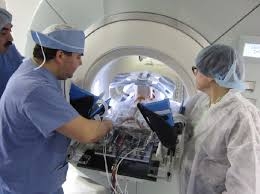The Magnetic Resonance Imaging (MRI) Robot-Assisted Surgeries Market analysis highlights how the combination of robotics and MRI technology is shaping the next era of minimally invasive procedures. MRI offers superior imaging capabilities, and when paired with robotic assistance, surgeons achieve greater accuracy in navigation and targeting, particularly in neurosurgery, cardiology, and oncology. This integration minimizes human error, reduces complications, and accelerates patient recovery times. The demand is driven by rising cases of chronic illnesses and the global shift toward advanced precision-based surgical methods. Healthcare facilities investing in MRI-compatible robotic platforms are seeing improved patient outcomes, reduced hospitalization periods, and higher procedural success rates.
The market’s expansion is also linked to technological breakthroughs in AI-assisted robotics, machine learning integration for surgical planning, and growing acceptance of minimally invasive procedures by patients. Hospitals are seeking systems that can handle complex surgeries while maintaining real-time MRI compatibility. Furthermore, research institutions and medical device companies are increasing collaborations to enhance robotic dexterity, accuracy, and software integration. With rising government and private investments in healthcare infrastructure, especially in developed nations, the market is projected to grow exponentially. The shift toward data-driven robotic platforms further strengthens its position as a cornerstone of future healthcare delivery.
FAQ
Q1: What is the biggest advantage of MRI robot-assisted surgeries?
A1: The biggest advantage is enhanced precision due to real-time imaging combined with robotic dexterity.
Q2: Which medical fields benefit the most?
A2: Neurosurgery, oncology, cardiology, and orthopedic surgery are key beneficiaries.
Q3: What drives the adoption of MRI robot-assisted systems?
A3: Rising demand for minimally invasive surgeries, better imaging, and reduced recovery times.
Q4: Is AI being integrated in these systems?
A4: Yes, AI and machine learning are increasingly being integrated to assist in planning and decision-making.

